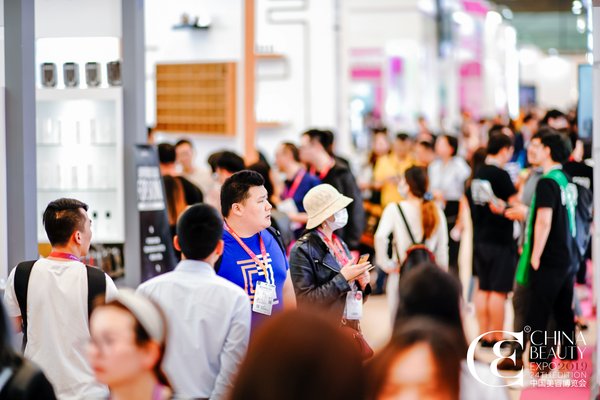Based on press release issued by China Beauty Expo, the impact of technology drives the future of beauty industry.
China Beauty Expo (CBE), the organizer of the world leading beauty show, has always been at the forefront and continuous development of the entire beauty industry. For 7 consecutive years, its Meiyi Science & Technology award has chosen the best in the industry in the form of: innovation, technology, sustainability & market recognition. This year, in cooperation with “YAT” and “beauty data.ai,” using post show data from the China Beauty Expo and online cosmetics data, the China Meiyi Science and Technology White Paper is released, evaluating the impact technologies have on consumer purchasing behavior and the type of cutting-edge technology that’s being embedded in products. Below is a brief extract of the white paper.

Technology Performance of Product Ingredients | Skin Microecology Technology
With the development of the skin biology, biological gene, skin microbiome and nanotechnology, there is much room for ingredient innovation in the field of cosmetics. Breakthroughs on the ingredient level is difficult, but the development of new material could result in the innovation for a whole category. The innovation of raw materials is expected to give players in the beauty industry opportunity to reshuffle. According to the patent application and the investment and financing in the beauty sector, the skin microecology technology, biological fermentation technology and cell extraction will steal the hotspots in the industry.
The market shares of products related to microecology have been expanding in the past year, with average monthly growth rate of 58%. According to data of CB Insights, the stock equity fund invested in the skin microecology concept companies has increased from USD 173 million in 2015 to USD 939 million in 2017, with YtoY growth rate from 2015 to 2017 of 320%, much higher than the investment growth rate of 19% in the cosmetics industry in the same period.
Technology to assist in collecting user data and enterprise decision-making
The online purchasing trend of cosmetics is evitable. During the outbreak of COVID-19, the volume of offline sales shrank, and the role of counter services diminished. Many of the beauty companies are developing online applications based on AI and VR technology, trying to establish an in-depth connection with the consumers.
- Consumers would get their skin diagnosed, supplied cosmetics and procedures without walking out of their houses;
- Enterprises would collect skin feature data and user habits virtually and develop products based on the data analysis;
- When consumers uses the application, their long-term usage habits would be nurtured. The interaction distance between the brand and consumers would be shortened to make it easier to establish brand loyalty.
Beauty technology application
- Kao uses AI technology to help the consumers to analyze their skin needs and provide targeted skin management.
- Unilever’s SAL (Skin Advisor Live) lets users upload their selfies, and the APP will analyze the user’s skin with the built-in diagnosis technology to generate results and recommend products.
- Sephora developed a smart phone app for consumers to try out the makeup products, such as lipstick and eye shadow virtually.
- Tencent combines the technology of 3D capture and AI to help users to discover the best suitable products from an in-depth learning algorithm.
- Alibaba’s program simulates a trial scenario for the consumer, monitor the skin condition at any time and provide professional skin-care suggestions.

Photo – https://photos.prnasia.com/prnh/20200907/2909561-1-a
Photo – https://photos.prnasia.com/prnh/20200907/2909561-1-b
SOURCE China Beauty Expo
